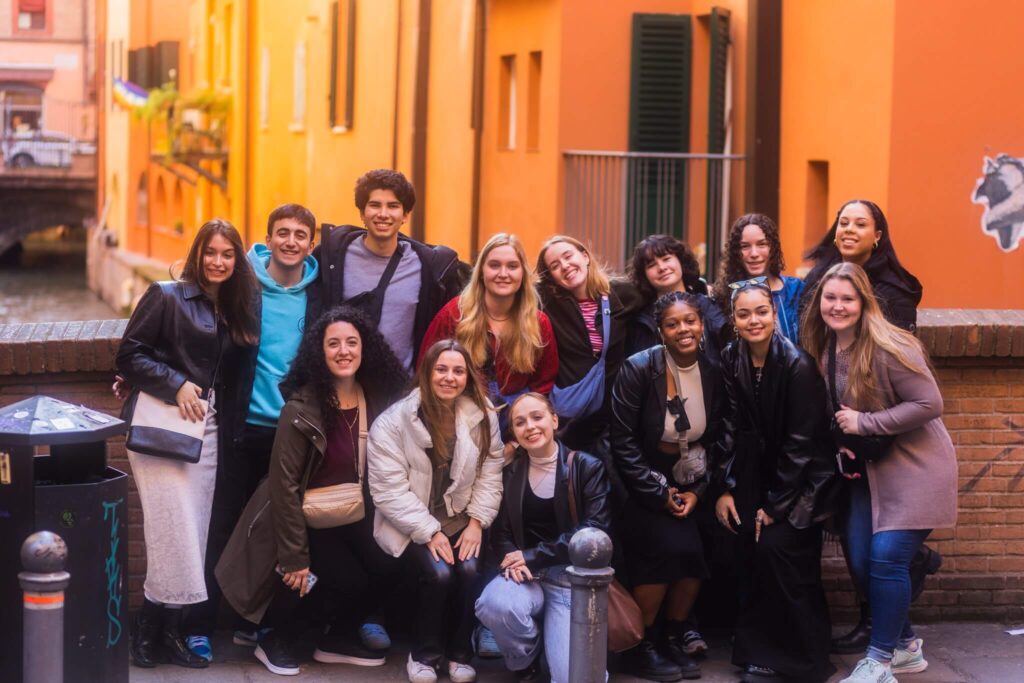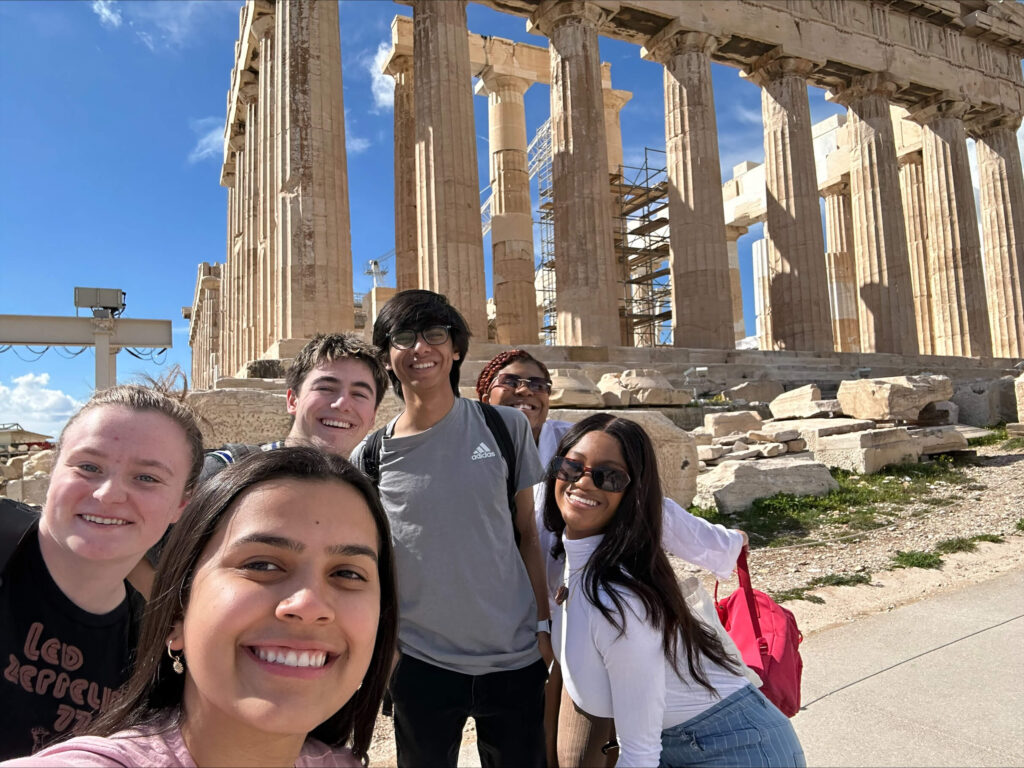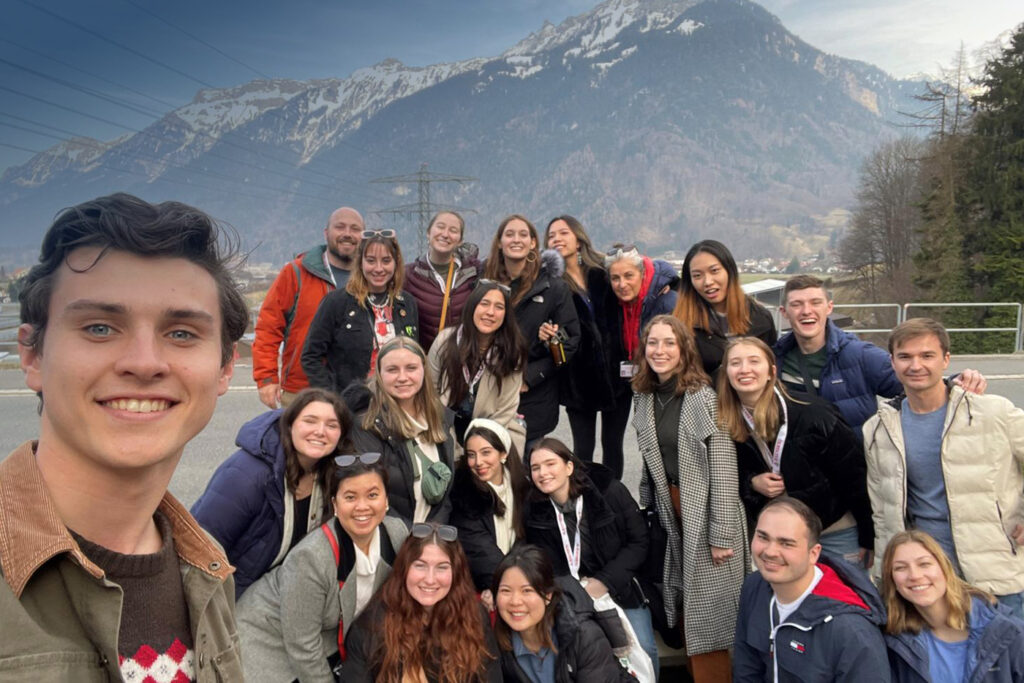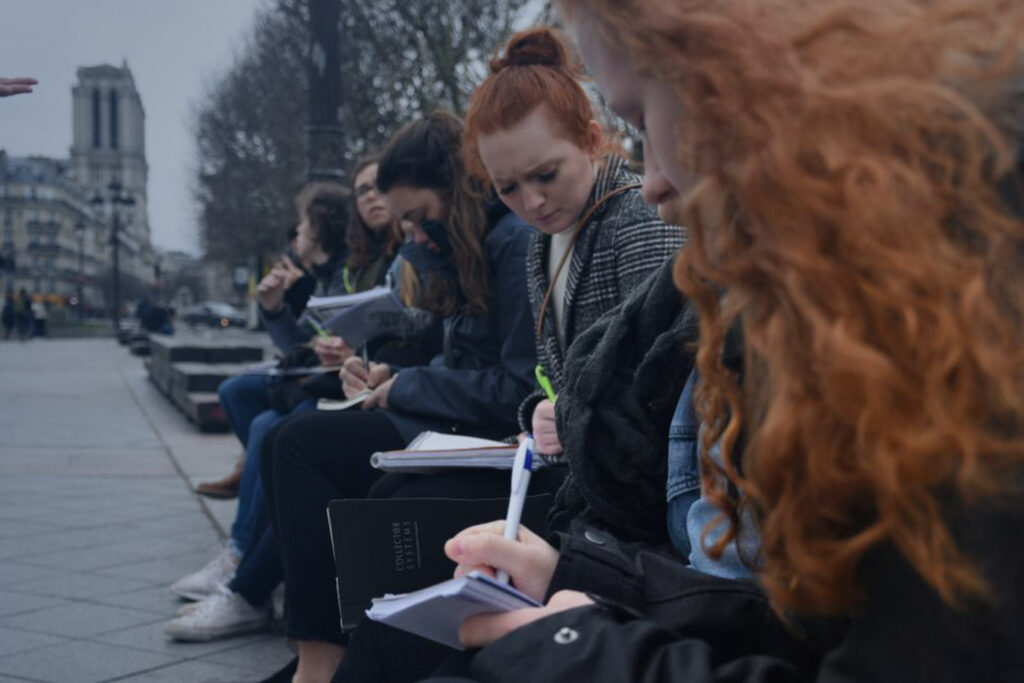Embedded courses are Penn State courses taken on campus or online that include a short-term international travel component, typically during spring break or Maymester. Embedded courses are an excellent opportunity for students who are seeking a shorter, more affordable alternative to a traditional education abroad program. For many students, embedded courses serve as a great introduction to international learning that spark a desire to pursue additional global experiences in the future.
Students from all majors are welcome to participate in Liberal Arts embedded courses, though the course may have certain academic prerequisites as determined by the faculty leader. International students are also welcome to participate in embedded programs and should be aware of any visa requirements that may be necessary for their program location.
Students should consult with their academic adviser about how a specific course may fit in with their degree plan. Programs will only run if they meet the requirement for minimum number of students.
of Penn State’s embedded programs are housed in the College of the Liberal Arts.
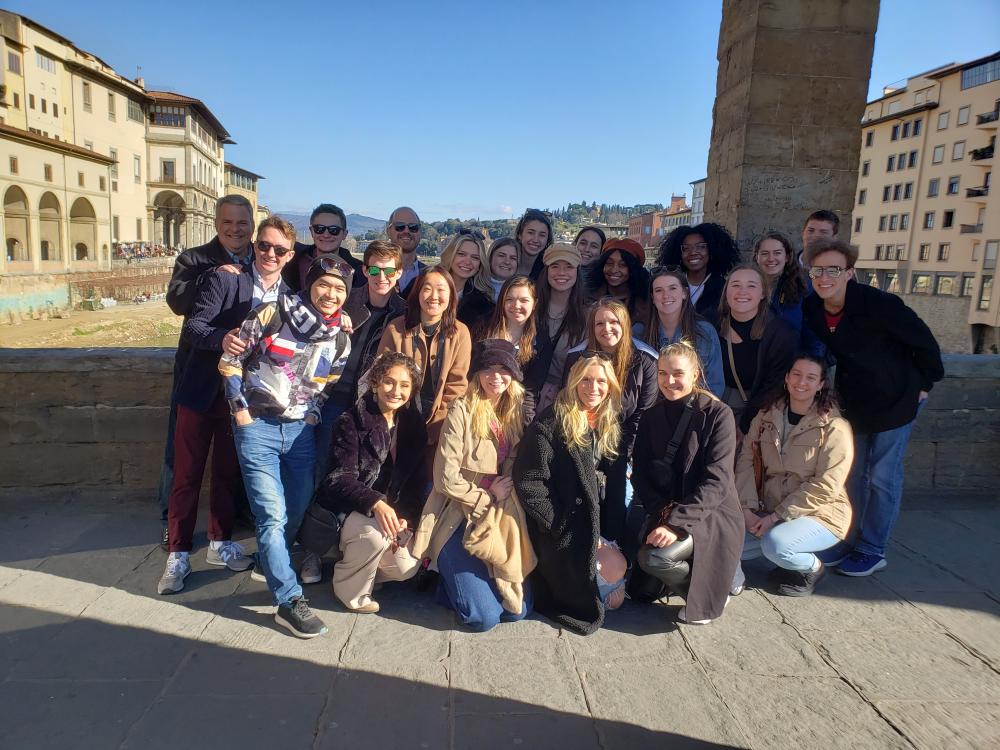
Current Programs
Fall 2025
To participate in a fall 2025 embedded program, please submit the program’s Official Financial Commitment Form by Tuesday, July 1.
AFR 499
Development and Sustainability in Morocco
Dates: November 20–30, 2025
Maymester 2025
To participate in a Maymester embedded course trip, please submit the program’s Official Financial Commitment Form by Wednesday, January 22.
Spring Break 2025
Registration is now closed for the spring break embedded programs. If you are interested in going abroad this summer, consider applying for a faculty-led program.
ANTH 297
Exploring the Ancient Maya World in Belize and Guatemala
Dates: March 8–15, 2025
CAMS/AFR 499
Carthaginians and Romans in Ancient Tunisia
Dates: March 9–16, 2025
RUS 197/297/497, UKR 197
Cultural Immersion in Post-Soviet Armenia
Dates: March 7–17, 2025
ARAB 99/499
Youth Life in Egypt
Dates: December 27, 2023–January 6, 2024
- 1
- 2
- 3
- 4
- 5
- 6
Past Programs
Read stories about recent embedded course trips.
Amsterdam, Netherlands
Athens, Greece
Latvia and Lithuania
Munich, Germany
Prato, Italy
Paris, France
Rome, Italy
Seoul, South Korea
Siem Reap, Cambodia
Switzerland
Tbilisi, Georgia
Willemstad, Curaçao
Yerevan, Armenia
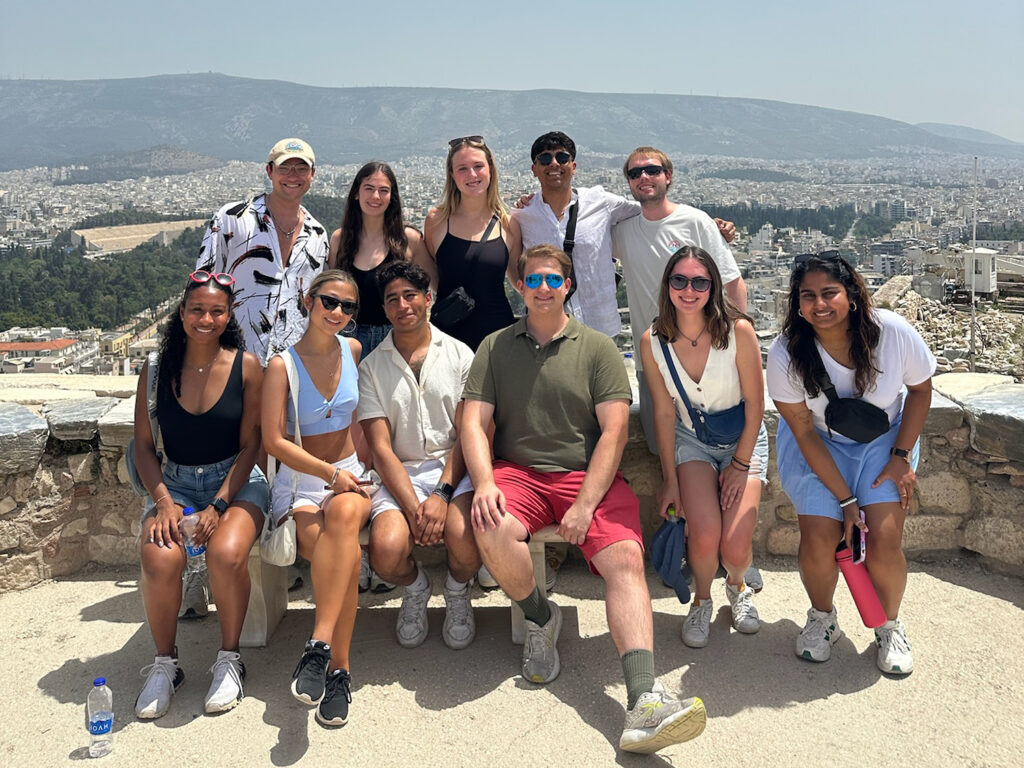
Athens, Greece
LHR 499 Comparative Labor and Human Resources: The Greek Experience
CAMS 15U Wonders of the Ancient World

Prato, Italy
SPAN/IT/PORT 210N Multilingual and Intercultural Communication in Italy
LANG 297 Multilingual and Intercultural Communication
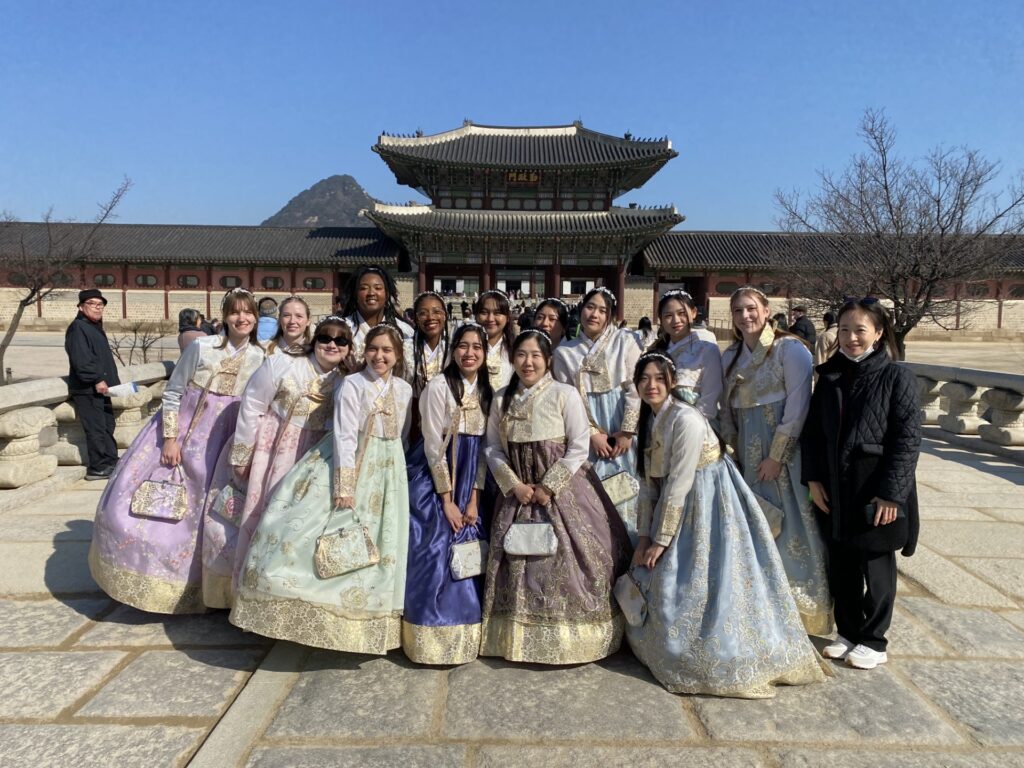
Seoul, South Korea
KOR 499 Immersive Korean, Language and Culture Spanning Generations and Lifestyles
Sociology and Culture in Korea (Maymester)

Athens, Greece
LHR 499 Comparative Labor and Human Resources: The Greek Experience
CAMS 15U Wonders of the Ancient World

Prato, Italy
SPAN/IT/PORT 210N Multilingual and Intercultural Communication in Italy
LANG 297 Multilingual and Intercultural Communication

Seoul, South Korea
KOR 499 Immersive Korean, Language and Culture Spanning Generations and Lifestyles
Sociology and Culture in Korea (Maymester)
- 1
- 2
- 3
- 4
- 5
- 6
- 7
- 8
- 9
- 10
- 11
- 12
Funding for Embedded Programs
There are several official avenues for embedded program funding within the University. The primary ways are through Liberal Arts Enrichment Funding and Penn State Global, but students can also explore funding opportunities through their academic department, the Student Engagement Network or Undergraduate Research and Fellowships Mentoring.
Liberal Arts Enrichment Funding
Liberal Arts students participating in an embedded program are eligible to receive enrichment funds. Students must complete the Official Embedded Course Financial Commitment Form for their program before applying for enrichment funds. When applying for enrichment funds, students must submit email confirmation from the faculty leader for the program documenting their acceptance into the program. Students should submit their application for the semester in which the travel experience will take place.
Penn State Global Scholarships for Embedded Programs
Education Abroad Embedded Programs Scholarship
Penn State Global offers a $1,000 scholarship for embedded programs. This competitive scholarship supports Penn State undergraduate students participating in officially recognized faculty-led embedded programs. The main factors for consideration are a student’s financial need and GPA. There is no application required to be considered for this scholarship. However, students must have a Free Application for Federal Student Aid (FAFSA) on file with the Office of Student Aid at Penn State. Your FAFSA must already be on file for the semester of travel. For more information, please see Embedded Programs Scholarship.
Pell Grant Guarantee
Pell-eligible students who do not receive an Education Abroad Embedded Programs Scholarship will receive a minimum scholarship of $750 from Penn State Global to participate in an approved embedded course. Students must be eligible to receive a Federal Pell Grant and have a FAFSA on file with the Office of Student Aid for the semester of travel. Note that students who receive an Education Abroad Embedded Programs Scholarship are not eligible for this scholarship. For more information, please see Pell Grant Guarantee.

